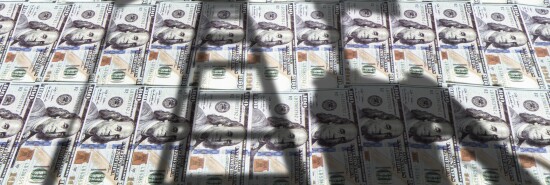
The failing petrodollar
Dominic Green
Video Embed
A nation needs a foreign policy for four reasons. The first is security. The second is that every other nation already has a foreign policy: If you do not assert yours, someone else’s will press upon your borders. These two reasons are physical, and the policies they produce are geographical and spatial: defending the borders, shaping the “sphere of interest.” These are ancient ideas. As Rome needed to control the Alpine passes, Rome had to control the terrain beyond the passes. See the Monroe Doctrine.
The third and fourth reasons are economics and ideology. These are, historically speaking, new ideas. Kings had always waged wars for gain, and some priest or courtier was always willing to dignify them with an appeal to the gods. But not until 1776 and the publication of Adam Smith’s Wealth of Nations did anyone notice the existence of economics, a machine the workings of which, once decoded, could be manipulated. Not until 1796 did the word ideologie appear in French. When it did, it described a liberal kind of sociology, not a rigid and usually tyrannical blueprint.
BIDEN HAS DONE MORE THAN TRUMP TO HARM AMERICA’S REPUTATION
While the first two reasons you need a foreign policy (security and rivalry) are physical and spatial, the second two (economics and ideology) are metaphysical and temporal. They are theoretical ideals. However strongly we believe in them, we can never fully realize them. They assume, like many 18th-century ideas, that history, rather than retreading the same terrain in both geography and human nature, is a one-way trip through time, much like the Christianity that the liberal economists and ideologists sought to displace from politics in the 18th century.
The failures of American foreign policy derive from trying to stamp the first two reasons with the logic of the second two. This confusion comes partly from the belief that America has good intentions where other nations have ideologies, and partly from the belief that as an American-run world means progress for everyone, there is no valid alternative. The truth is that the United States, being the quintessential 18th-century liberal endeavor, is even more ideological than France, and hugely more ideological than, say, China.
If you were an emerging economy in 1995, integrating into the dollar-denominated global system and making nice to Washington offered a shortcut to affluence and stability. Today, less so. The “War on Terror” proved that the U.S. was willing to destabilize the global system for ideological reasons. The Great Recession that began in late 2007 proved that the U.S. was an unreliable custodian of the global financial system. As the U.S. retreats from its strategic and economic spheres of interest, rival powers are moving in, especially China. As economics and ideology have become central to American foreign policy, the failure of foreign policy means a crisis of the U.S. dollar.
The Biden administration’s foreign policy is exceptional in failing at both the physical and metaphysical aspects. The southern border is open to random immigrants, human traffickers, and drug smugglers. Beyond what used to be the border, China has supplanted the U.S. as the top trading partner of nine Latin American countries. In 2021, trade between China and Latin America (excluding Mexico) reached $247 billion, which was $73 billion more than trade with the U.S. that year. President Andres Manuel Lopez Obrador of Mexico would not be calling for the abandonment of the Monroe Doctrine if it were not already undone in practice.
CLICK HERE TO READ MORE FROM THE WASHINGTON EXAMINER
These are the wages of economic neglect and contempt. The eclipse of the U.S. dollar is, however, being hastened by actively feckless policy, which is to say, ideology. Sanctioning Russia for the Ukraine war may make the world safe for Hunter Biden’s business activities, but it has pushed Russia outside dollar-denominated energy trades. While India and China are buying cheap Russian gas in rubles, rupees, and yuan, the European economies pay the inflationary price. As in 2003 and 2007-08, the world is watching and drawing its own conclusions.
In the last week alone, Brazil and China agreed to ditch the U.S. dollar and denominate sales of LNG and other raw materials in Chinese yuan and Brazilian reals. The Malaysian prime minister said that there is “no reason” to depend on the U.S. dollar and proposed a Chinese-led “Asian Monetary Fund” as an alternative. The UAE sold its first yuan-denominated LNG trade in a transaction between China National Offshore Oil Corporation and the French company TotalEnergies. The Saudis, who joined the Chinese-led Shanghai Cooperation Organization as observers in late March, rejected President Joe Biden’s entreaties by cutting oil production for a second time. Talks are said to be ongoing about Saudi oil being sold in Chinese yuan.
The U.S. is losing control of global energy markets. The age of the petrodollar, inaugurated in 1945, is ending. The federal deficit has now passed $30 trillion. None of this is “safe for democracy.”
